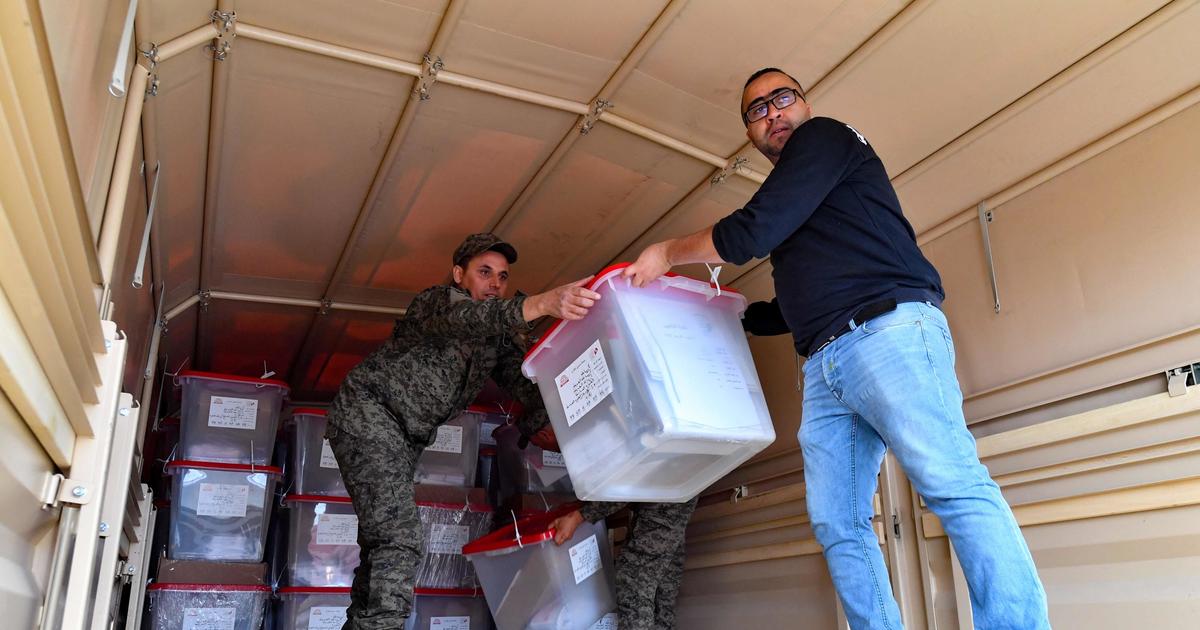Tunisians elect their deputies on Saturday, December 17 in elections boycotted by the majority of parties, the last step in the construction of a hyper-presidentialist system by the head of state Kaïs Saïed after his coup a year ago. and half.
The election takes place after three weeks of a lackluster electoral campaign, with very few posters of candidates in the streets and in the absence of serious debates, at a time when the population seems above all concerned by the continuous deterioration living conditions.
A new chamber of 161 deputies must replace the one that Kaïs Saïed froze on July 25, 2021, after months of blockages by the institutions in place since the fall of President Zine el-Abidine Ben Ali, during the Arab Spring revolt of 2011.
The Parliament resulting from the legislative elections - after a second round organized by the beginning of March - will be endowed with very limited powers under the new Constitution that Kaïs Saïed had adopted this summer during a referendum marked by massive abstention (nearly 70%).
He will not be able to impeach the president and it will be practically impossible for him to censure the government.
It will take ten deputies to propose a law and the president will have priority to pass his own.
"There is no electoral atmosphere (...) It is a non-event"
Kaïs Saïed has imposed a new two-round single-member majority voting system which greatly reduces the role of political parties, with candidates with no visible affiliation.
"This vote is a formality to complete the political system imposed by Kais Saied and concentrate power in his hands
," political scientist Hamza Meddeb told AFP.
"Tunisians know that Parliament will have no political weight and will be stripped of all power,"
he said, predicting a
"very low" turnout
.
“There is no electoral atmosphere (...) It is a non-event”
, adds Hamza Meddeb.
The candidates, unknown to most of the general public, are
"novices in politics, unable to mobilize in an extremely degraded economic context"
, adds the political scientist.
Read alsoIn southern Tunisia, fatigue with the legislative elections
According to the Tunisian Observatory of Democratic Transition, half of the candidates (1,058) are teachers or middle-level civil servants.
Women represent less than 15% of applicants, whereas the parity of applications was previously mandatory.
The main concern of the 12 million Tunisians (including 9 million voters) remains the high cost of living with inflation of almost 10% and the recurrent food shortages (milk, sugar).
A vote boycotted by the parties
The ballot was boycotted by most parties, including the Islamist-inspired movement Ennahdha - sworn enemy of President Kais Saied - which dominated the dissolved Parliament for ten years.
The powerful UGTT trade union center, which recently became very critical of Kaïs Saïed's policy, deemed these legislative elections unnecessary.
Al Bawsala, an NGO that has been scrutinizing parliamentary activities since 2014, announced that it would boycott the work
of "a puppet assembly"
whose role, according to it, would be limited to
"supporting the orientations of the president"
.
Read alsoStrange electoral campaign in Tunisia
If he considers that the ballot is above all
"a tool used by President Saïed to confer legitimacy on his monopoly of power"
, analyst Hamish Kinnear of the firm Verisk Maplecroft believes that the establishment of a Parliament will
" facilitate
Tunisia 's relations
with its main external partners, putting an end to 17 months of constitutional uncertainty”
.
It will be easier, according to him, to obtain aid from donors
“thanks to a return to greater political predictability, even if the democratic legitimacy of the legislative elections is weak”
.
There is urgency because the coffers of the country are empty.
The IMF, which was to give the green light on Monday to a fourth loan to Tunisia in ten years (of around 2 billion dollars), postponed its decision until early January at the request of the Tunisian government, whose file was not completely closed. , according to sources familiar with the matter at AFP.

